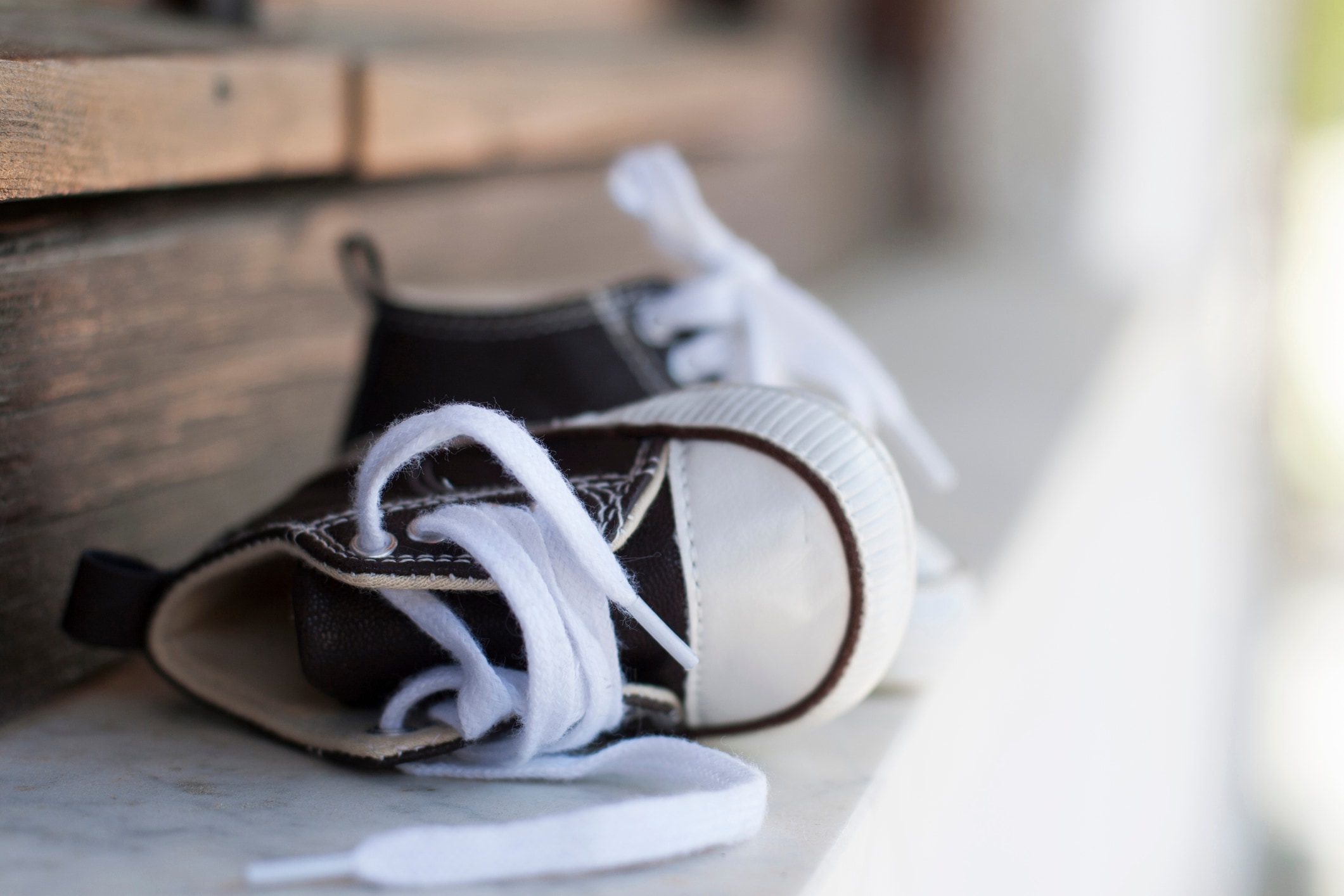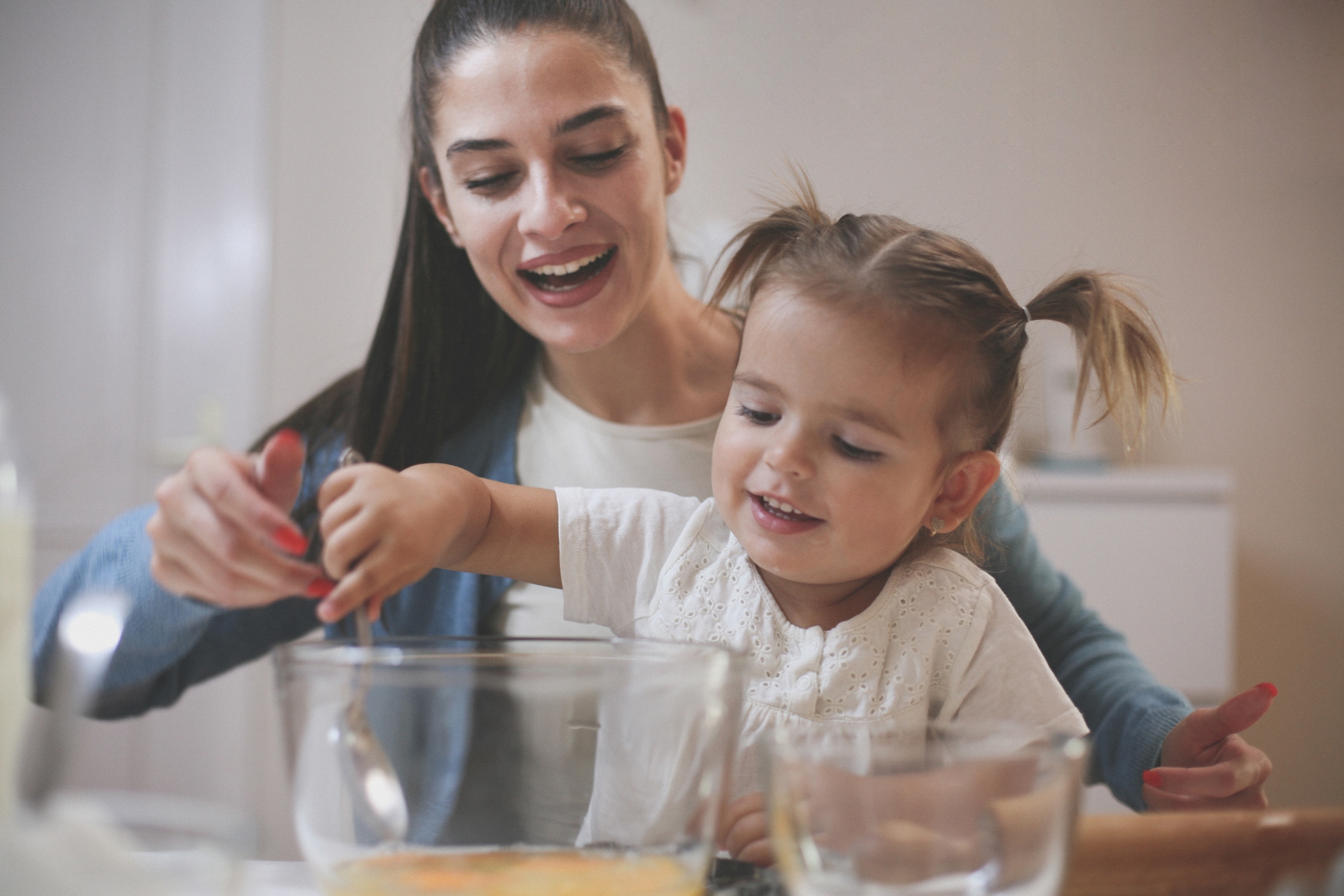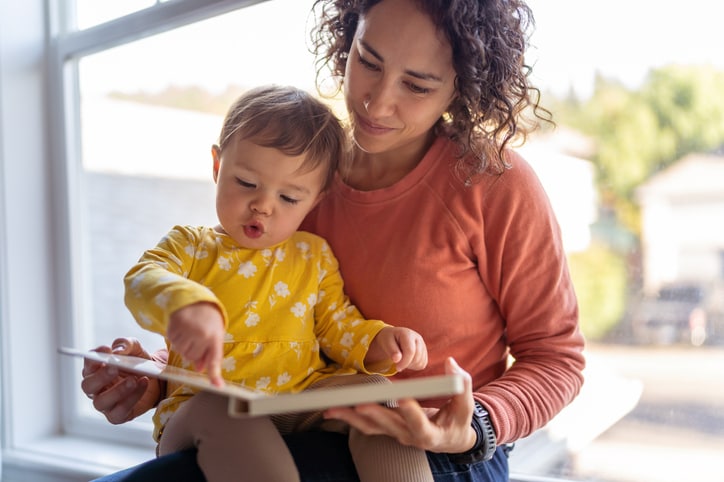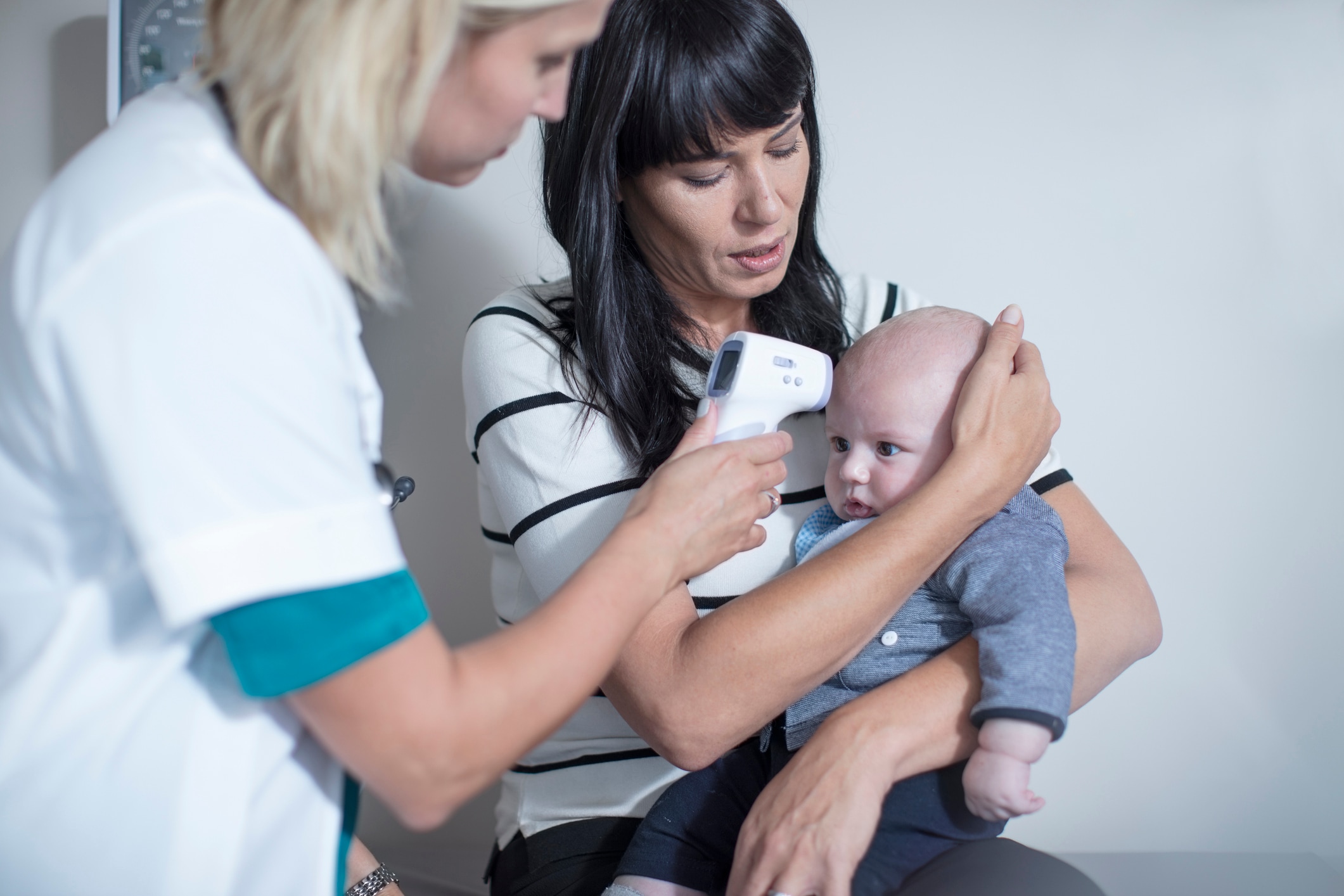In this article
Sure, parenting tweens can come with its challenges. But there are also perks, especially if you’re a parent of siblings. Not only can caregivers benefit from having an extra set of eyes to look after younger siblings, but at a certain age, an older child can babysit their sibling too. What’s more, according to the experts we spoke to, kids between the ages of 9 to 12 can benefit from taking on added babysitting responsibilities.
“It’s important to give tweens responsibility for helping out within the family, however they’re capable of doing so,” explains Phyllis L. Fagell, licensed clinical professional counselor in Bethesda, Maryland, and the author of “Middle School Superpowers: Raising Resilient Tweens in Turbulent Times.” “It instills a sense of purpose, heightens a sense of independence at an age when kids crave and need it, and reinforces the importance of helping others.”
Wondering at what age can a child babysit a sibling and if your own tween is ready to babysit their siblings? Consider this your guide for determining the right age your child should be to care for a sibling — and when it may be better to hire a professional sitter.
Key takeaways
- Laws regarding babysitting age vary by state, and many states require kids to reach a minimum age between 8 and 14 years old before they can legally stay home alone.
- Developmentally, kids are ready to babysiter when they’re mature, responsible and resourceful. Try letting them watch siblings while youre at home to test their preparedness.
- If kids aren’t developmentally ready to babysit siblings or you’re going to be gone for a long period of time, it may be best to hire a professional babysitter.
Legally, at what age can a child babysit a sibling?
Different states have different laws around the legal age when children can babysit, which parents should be familiar with, Fagell advises. When it comes to caring for younger siblings, there are two important situations that your state’s regulations may inform:
- When children can legally be left home alone.
- When a child is of legal age to babysit
Some states have laws about when you can leave a child home alone, with minimum ages ranging from 8 to 14 years old, according to the American Academy of Pediatrics (AAP). They suggest visiting Child Welfare Information Gateway’s State Statutes to see the relevant laws in your area. When it comes to babysitting laws, only one state — Maryland — defines the legal age when a child can babysit another child as 13.
“It’s important to give tweens responsibility for helping out within the family, however they’re capable of doing so. It instills a sense of purpose, heightens a sense of independence… and reinforces the importance of helping others.”
— Phyllis L. Fagell, licensed clinical professional counselor
Developmentally, at what age can siblings babysit?
Determining when your child is able to babysit a sibling is not an exact science, according to the experts we spoke to. Most children will not be mature enough to manage being alone on a regular basis until they are 10 or 11 years old, AAP pediatricians agree. As for caring for a sibling? The AAP advises that a person must be at least 12 years old to take on the responsibility of watching young children and mature enough to handle common emergencies.
“The exact age depends on individual variables such as maturity, skill set, confidence and resources,” says Francyne Zeltser, a psychologist with Manhattan Psychology Group in New York City. “For example, a mature, resourceful 12-year-old may be better suited to care for a younger sibling than a 16-year-old who is immature or anxious about staying home alone.”
To decide if a child is capable of caring for the health and safety of a younger sibling on their own, here are the top factors to consider:
Ability to provide care
Many school-aged children between the ages of 8 to 12 are able to help their parents care for younger siblings for short periods when access to their basic needs is the priority, explains Zeltser. This could include small tasks like helping them get dressed or preparing a cold meal or drink.
“Often this provision of care occurs when parents are home but unavailable, such as when children wake up earlier than their parents in the morning, when a parent is in the bathroom or shower or when a parent is working from home,” Zeltser says.
Length of time
“There’s a significant difference between caring for a sibling for a brief period of time like 15-45 minutes or for longer periods of time,” Zeltser says.
When caring for a sibling for a brief period of time, the role is often more of a supervisor than a caregiver, she explains. Often the sibling will likely only need to oversee tasks, rather than carry them out. For example, a parent may prepare a meal and leave the older sibling to supervise the younger sibling while eating. “That overseeing responsibility is significantly less than having the responsibility of carrying out mealtime independently,” Zeltzer says.
Caring for siblings for longer periods of time, however, when parents are not home or not in close proximity to the home, requires a sibling to be in middle or high school, Zeltser explains. She defines a long period of time as being within the range of over an hour to a half or full day.
In general, she notes, it is wise to have an adult caregiver, such as a relative or neighbor, minimally check in on the children if the parents are going to be away for extended periods of time.
Age of younger siblings
The AAP recommends that younger teens should not babysit for children younger than 6 months old and that even toddlers can be challenging. They also advise that teens should only care for one child at a time if the child is 3 or younger.
But again, the appropriate age gap between children depends on the needs and maturity of each individual child. “There are not ‘one size fits all’ guidelines in terms of age or age gap,” Zeltser says. “It depends on the individual family and children, the needs of the child being watched, and the maturity, skill set, confidence and resources of the child doing the watching.”
Signs your child is ready to babysit a younger sibling
“Often children will organically show signs of readiness by taking more initiative providing support to the younger children in lieu of their parents, without being asked or told to do so,” Zeltser says. “They may ask their parents for more responsibilities or take these on with younger children outside of the home such as being a mother’s helper for a neighbor or for family members with younger children.”
Here are more signs your child is ready to care for a younger sibling on their own, according to both experts and parents:
1. They can handle hypothetical scenarios
“Parents can provide their children with hypothetical scenarios to see how they would problem solve if they were looking after a younger sibling and a similar situation occurred,” Zeltser says. To do this, start by setting house rules or a list of things they can and cannot do while babysitting. “These may include whether the children are allowed to use the stove, leave the home, invite other people into the home, bathe, etc.,” she says.
Next, ask how your child would handle a mix of hypothetical situations. For example:
- What if a stranger comes to the door?
- What if your sibling wants to play outside?
- What if your sibling starts to cry or get upset?
2. They don’t need parental support to babysit even when you’re home
“Tweens and teens tend to rise to the level of parents’ expectations, and asking them to help signals trust,” Fagell adds. “You can start by enlisting their help with younger siblings while you’re at home and build from there.”
Zeltser recommends using a gradual release approach by providing the child with opportunities to take on more responsibility and be more autonomous, while the parent is still accessible, she says. For example, the parent stays in their room and does not interfere unless a specific time has passed or support is needed.
“A competency gauge would be to allow the child to demonstrate the ability to care for a sibling three consecutive times with no parental interference or support needed,” Zeltser says. “Once that competence is demonstrated, a parent may feel more comfortable doing a real trial where the parent leaves the home for a specified period of time. As things go well, the parent would extend the time they are out of the home, allowing the child to take on more responsibilities that come along with caring for a sibling over longer periods of time.”
“Often children will organically show signs of readiness by taking more initiative providing support to the younger children in lieu of their parents, without being asked or told to do so.”
— Francyne Zeltser, psychologist
3. They know how to communicate in case of an emergency
“Knowing that your child is mature enough to be able to handle communication, whether it’s with a landline or a cell phone, was the biggest thing for us when it came to feeling comfortable leaving them home alone,” says Betsy Sidebottom, a mom of seventh grade twin daughters and a fifth grade son based in South Carolina. “At 10 years old, we felt we could trust they could make good decisions and we intentionally taught them how to use the home phone, or we would leave my cell phone so they could text us.”
Once your child knows how to use the phone, it’s just as important for them to know who to call. Parents should provide at least the following contacts for babysitters, according to the AAP:
- Parents phone numbers.
- Neighbors phone numbers.
- Pediatrician.
- Fire/rescue.
- Police.
- Poison Help Line (1-800-222-1222).
When to hire a professional babysitter
Some school-age children between the ages of 8 to 12 may be capable of caring for the basic needs of younger siblings while a parent is home. But to be left alone to care for a sibling, parents should consider state laws and the AAP’s recommendation that they should be at least 12 years old.
If a child is not able to consistently care for themselves while home alone, they are not ready to care for a sibling, Zeltser says. Similarly, if a younger sibling cannot be left alone without needing parental support to resolve problems that may arise like feeling sad or scared, it may not be time to leave them with another child.
Other situations, such as having a medically fragile child or child with special needs, might warrant hiring an adult babysitter even if the older sibling is within the appropriate age to babysit, Zeltser concludes.





